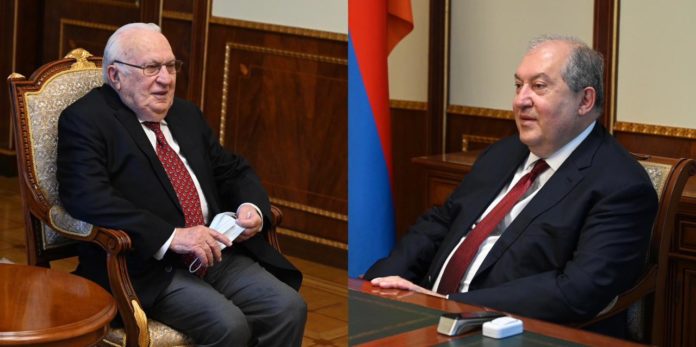YEREVAN — On June 19, on the eve of the parliamentary elections, President Armen Sarkissian agreed to an interview with me, representing the Mirror-Spectator, on issues plaguing Armenia these days. This visit proved what was very obvious from outside — that there is a disconnect between the presidential office and the executive branch of the government. No matter how ceremonial the office of the president may be, it still has a function and a role in the workings of the entire country.
Beyond the strictly constitutional definition of the president’s role, the personality of the latter matters. Sarkissian was a prominent scientist before engaging in statesmanship and diplomacy. In addition to his knowledge of state-of-the-art science, over the years he has accumulated tremendous experience on a large scale in international trade and business. Along the way, he has been in contact with world leaders, relations with whom can lead to substantial benefits to the country.
One gets the impression that by confining the president to his constitutional role, and defining that role very narrowly, the Armenian government has been denying itself a powerhouse of resources which are so very needed by Armenia.
During the entire course of the conversation, the president seldom employed any diplomatic ambiguity or evasiveness. He was direct and as objective as possible.
President Sarkissian was one of the prominent leaders of the country who had called for the resignation of the prime minister after the debacle of the war, and recommended the formation of a government of technocrats. Referring to that matter, and to the notion that he might preside over such a government, Sarkissian offered the clarification that his recommendation was not directed at the prime minister’s person, but a suggestion that the entire cabinet be replaced. As to whether he might himself become the head of such a technocratic cabinet, Sarkissian suggested that he was bound by his constitutional role not to assume any executive position.
The president’s call for the resignation of the current government was based on his belief that the Third Republic has already run its course and we are at the threshold of a Fourth Republic.










